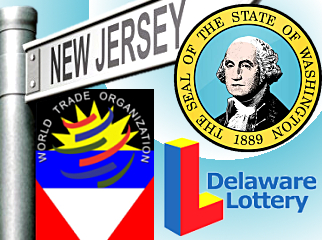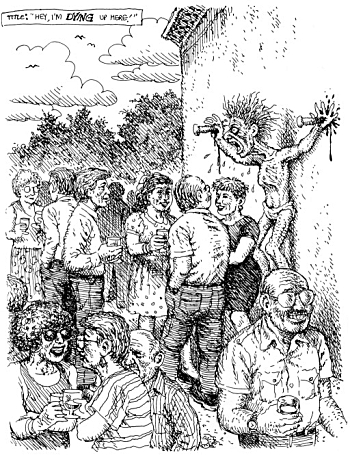 New Jersey legislators say they hope to approve a revised version of the state’s online gambling legislation by Feb. 26. Assemblyman John Amodeo said the Office of Legislative Services is working on a new bill that incorporates all the recommendations Gov. Chris Christie made in last week’s conditional veto of the original legislation. The Senate is not due to sit until March but Christie is scheduled to address the Senate on Feb. 26 and state Sen. Ray Lesniak told the Press of Atlantic City he will use the gathering to push for a vote. Assuming everything proceeds as planned, Christie would have another 45 days in which to sign the bill into law.
New Jersey legislators say they hope to approve a revised version of the state’s online gambling legislation by Feb. 26. Assemblyman John Amodeo said the Office of Legislative Services is working on a new bill that incorporates all the recommendations Gov. Chris Christie made in last week’s conditional veto of the original legislation. The Senate is not due to sit until March but Christie is scheduled to address the Senate on Feb. 26 and state Sen. Ray Lesniak told the Press of Atlantic City he will use the gathering to push for a vote. Assuming everything proceeds as planned, Christie would have another 45 days in which to sign the bill into law.
All kinds of optimistic projections are being thrown around as to when New Jersey-licensed companies might actually launch their online gambling offerings, but not everyone is convinced the train will leave the station anytime soon. On Tuesday, Goldman Sachs issued a ‘sell’ rating on Boyd Gaming, which has a 50% stake in Atlantic City’s Borgata Hotel Casino & Spa. The other 50% is held by MGM Resorts, and the two companies have an online poker joint venture with pan-European operator Bwin.party digital entertainment. Goldman Sachs’ report said that while Boyd may ultimately benefit from New Jersey’s legislation, “[online gambling] could take longer than expected to roll out and will be very competitive, with high promotional activity, which in turn could lead to lower-than-expected margins.”
DELAWARE TALKS SHARING POKER LIQUIDITY WITH EUROPE
Similar words of caution are coming from Delaware, which passed its own full-fledged online gambling legislation last summer. Despite having what Delaware Lottery director Vernon Kirk called “quite a head start” on the Garden State, Delaware’s original target date to begin taking online wagers has moved from ‘early 2013’ to Sept. 30, 2013. Kirk told USA Today that the online plans were delayed in part because the state chose to prioritize the launch of a statewide Keno network and the expansion of football parlay betting to non-casino venues. “These things were easy to say, but they were pretty involved to do.” Nevada is also discovering that talk is cheap after its first three approved interactive gaming licensees sought six-month extensions on getting their digital game on.
Signing deals with other gaming jurisdictions will be key for Delaware’s online poker offering to have any chance of success, as the state’s population is less than a third of Nevada’s (which one gaming researcher dismissed as a dinky “sandbox” in which online poker companies would soon grow tired of playing). Nevada is pressing its legislators for the right to enter into interstate compacts and Kirk said inking a Nevada deal would be a no-brainer, but Delaware may be looking much further afield for liquidity. “I think [Nevada] would make a good partner. We’ll see what New Jersey does, and there’s even been discussion that [compacts] wouldn’t necessarily exclude Europe.” It would be interesting to hear the US Department of Justice’s stance on that last part.
WASHINGTON STATE CONSIDERS LOOSENING THE THUMBSCREWS
On the other coast, Washington state Rep. Paul Harris has introduced legislation to decriminalize online gambling. In what was widely viewed as a bid to protect the state’s tribal casinos from competition, Washington passed legislation in 2006 making online gambling a Class C felony punishable by up to five years in prison and a $10k fine. Poker Players Alliance rep Lee Rousso attempted to challenge the law, but was shot down by the state Supreme Court in 2010. Harris’s HB 1824 proposes that individual players face no more than a “class 3 civil infraction” punishable by a maximum $50 fine and “statutory assessment.” Harris isn’t looking to lessen the punishments for online gambling companies, many of which ceased offering services to Washington residents in 2010.
 DON’T FORGET ANTIGUA
DON’T FORGET ANTIGUA
It’s worth noting that domestic online horse wagering was exempted from Washington state’s draconian crackdown due to the practice being permitted under the federal Interstate Horseracing Act (IHA). It’s also worth noting that the IHA carveout was largely responsible for the Caribbean nation of Antigua winning its multiple victories against the US at the World Trade Organization. Antigua is currently working out the nuts and bolts of how best to implement sanctions on US intellectual property, as authorized by the WTO in recognition of the damage done to Antigua’s economy by the US’ protectionist online gambling barriers.
As US states scramble to beat each other out of the starting gate and start reaping the benefits of online gambling, American gamblers and gambling companies are celebrating, yet all this progress has come at the direct expense of Antigua’s once thriving gambling industry, which is now in tatters as a result of US trade policy. It reminds us of that famous Robert Crumb panel (pictured right), ‘Hey, I’m dying up here!’
US trade representatives in Washington stubbornly continue to cling to their discredited policy, despite their position being simultaneously undermined at home (the states using their Constitutional right to decide for themselves what kind of gambling they wish to allow) and abroad (multiple international trade rulings describing Washington’s policy as illegal). The Council on Hemispheric Affairs (COHA), a Washington think-tank focused on US policies towards Latin America, recently made sport of Washington’s “farcical” claims that “the world’s 15th smallest economy is engaged in some form of economic bullying” by targeting US intellectual property. COHA research fellow Eric Stadius says Washington, which “has taken advantage of a self-serving trade system for the past 20 years, should brace itself for the system to push back.”
